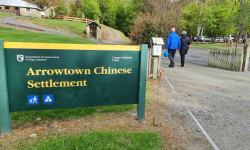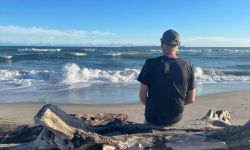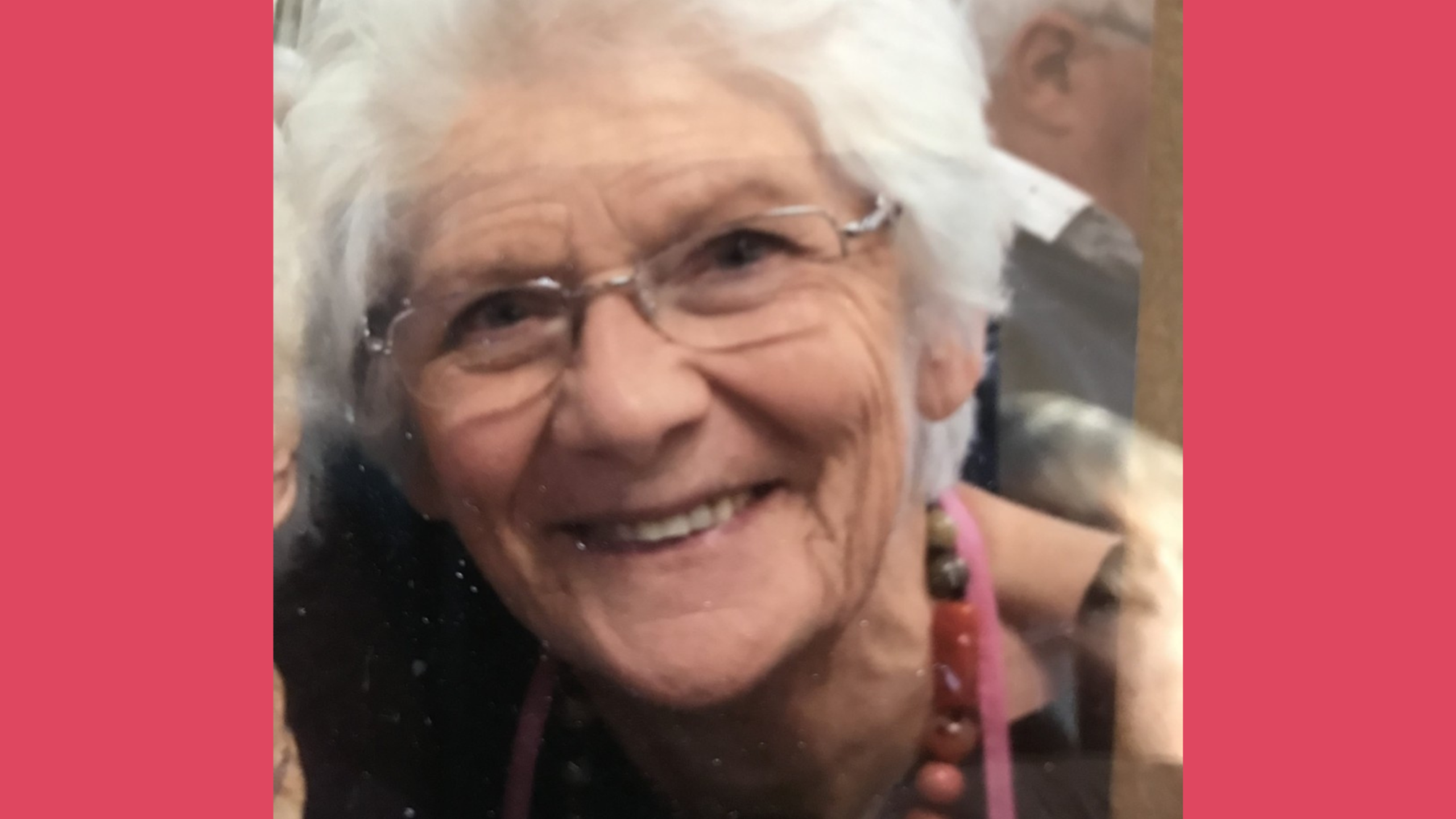
Woman of the month is a column provided by Baptist Women New Zealand. More articles, resources and event information can be found at women.baptist.nz
Preliminaries in Gisborne, Wellington and Auckland
The young Percy Williams arrived in New Zealand prior to World War 1, and then served as a corporal in the British army. With an injured right arm, he returned to become a farm labourer in Gisborne for his cousin. He married Joyce, a qualified nurse and midwife whom he met at the Gisborne Baptist Church, and Elizabeth, born 1936, was their first child, followed by a sister, Janet, and later a loved adopted older sister.
The children knew the joys of a fruit orchard, a beautiful old house, many visiting missionaries, games at home on a Saturday night, and even a Steinway piano, for both parents were singers. But they were poor. Her lay-preacher father, suffering from fibromyalgia and heart disease, was paid only once a year, so they lived off the land, well fed with fruit and vegetables. Mother who had supervised the hospital children’s ward, now fed workers with scones and cakes, and bought, along with the groceries, a new song fortnightly for her older daughter to learn. Elizabeth loved it. Her best mates at school were Maori and she learned the songs and dances and a smattering of Te Reo. Elizabeth had her first singing lessons with next door neighbour Norah who had been an opera singer with cupboards full of opera dress-ups and horses to ride from their stables. In time, Mother needed house help with baby Janet, so Dad brought in Mary, 16, who became a sister and remained part of the family. For high school in Gisborne Elizabeth boarded in town and thrived on geography and music.
Life in Singing: Elizabeth had learned piano ever since she could remember. She entered singing Competitions from age 11 when she started singing lessons with the neighbour, continuing until she became a singing teacher herself.
Geography and music continued for Elizabeth at university when she stayed in the Baptist Hostel in Wellington and finished a last paper in Auckland in 1957 while doing teacher training. She then taught Social Studies, Geography and Music at Mt Roskill Grammar School for three years, a great place to put on school musicals, while slotting in netball coaching as treasurer of the Auckland Netball Association (remember how tall she was—just right for netball), and Commandant for Crusader Camps (Scripture Union).
Life in Singing: While studying at Victoria Elizabeth sang alto in ‘Schola Cantorum’ choir and in her third year sang in Menotti’s Amahl and the Night Visitors in NZ National Opera. Weekly, too, she sang as a member of the English Singers on 2YC Radio NZ.
In her first year in Auckland, Elizabeth sang the part of Macheath’s moll, Nancy, in The Beggar’s Opera. There was a funny moment when her singing teacher heard her sing a gospel solo at Avondale church the next day and could not believe it was the same person. Elizabeth was studying vocal music and winning competitions in Folk, Sacred, Leider and Opera in Auckland and Hamilton. Her life as a soloist seemed ready to take off when everything changed as she married Gordon Jones in August 1960.
People and Practicalities in N.E. India
Elizabeth and Gordon met at Mt Albert Baptist when he was on his first home assignment from mission work with NZ Baptist Missionary Society. He had joined his parents, Nell and Harry Jones in the tiny Indian state of Tripura after his training as a lawyer. The first stop after marriage was Switzerland where Gordon studied theology, followed by Bengali language study in Darjeeling, India, for Elizabeth.
Life in Singing: In Switzerland Elizabeth was organist for chapel and accompanist for a Dutch flute player.
And then they arrived in Darchawii (pronounced Darchoy) in jungle below the Jampui Hill range in Northern Tripura. The Darlong people had not yet reached the twentieth century, especially for women. A doctor who preceded them had insisted they build toilets and keep the pigs in pens, two measures that saved the lives of many children. Men cleared the forest for shifting cultivation and then sat round while women, sparsely clad in a breast binder and abbreviated hip length wraparound, joined the work—planting and growing the crops, minding and feeding children chickens and pigs, spinning and weaving their beautiful garments and shawls. They were almost slaves, small and bent over, so overworked that grandmothers lactated and breastfed the babies! The people of tribal hill tracts had no medical attention for ordinary or tropical diseases, and the nearest hospital was 100 miles away.
The Jones family lived in an old dispensary while awaiting a timber and thatch home. Bamboo grew everywhere and herds of elephant, tigers, deer, boar and black bears roamed. Numerous brightly coloured birds and flowers revealed their beauty. Days were devoted to the Darlong people. A nearby tribe’s Mizo Bible and Mizo hymns supplemented their language and Elizabeth learned some Darlong and Mizo too.
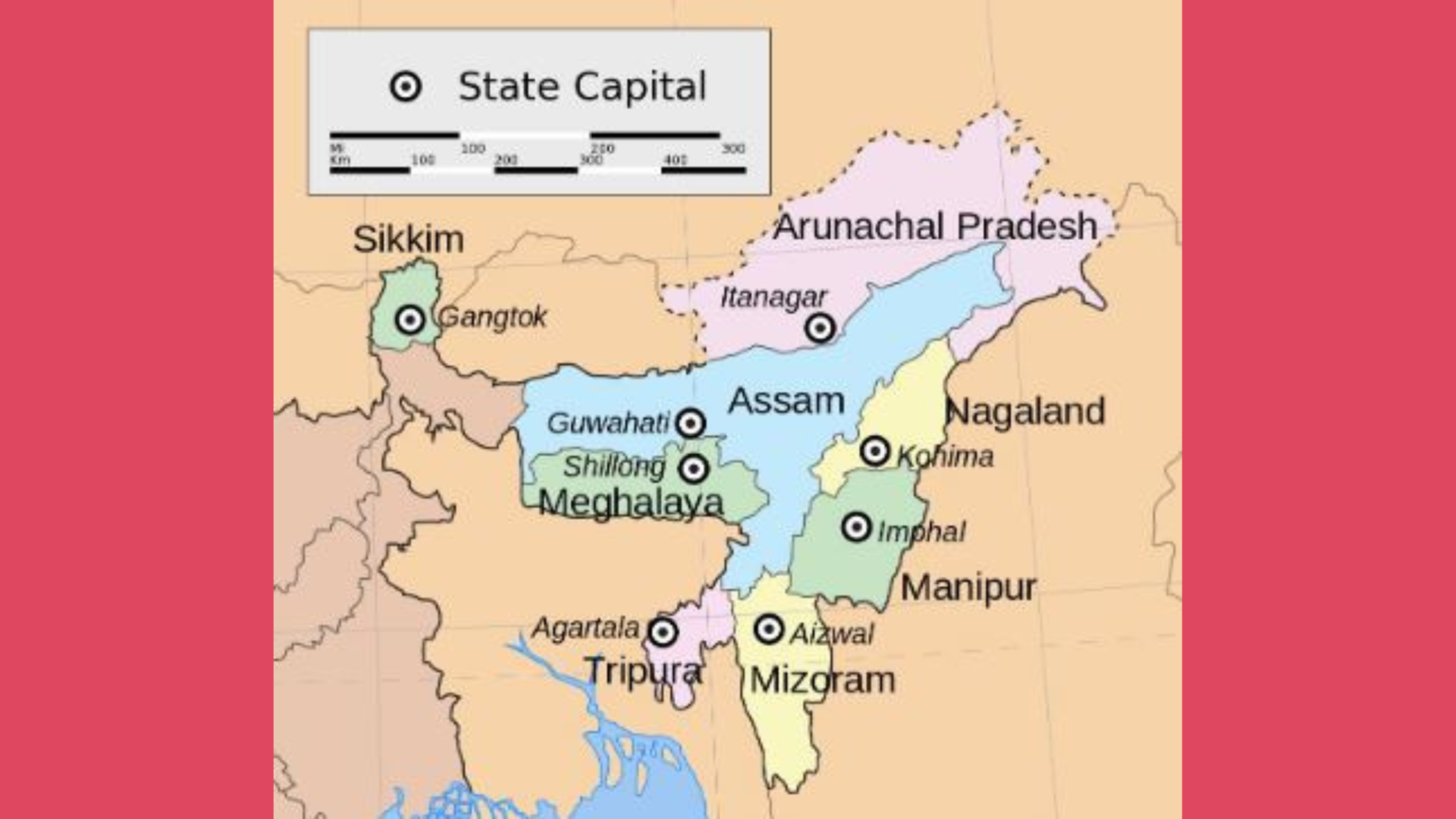
(Map: Tripura state surrounded on 3 sides by Bangladesh.)
A large section of work for Gordon and Elizabeth was education. They helped set up elementary schools in villages preparing promising students for high school elsewhere. Many became valuable leaders. Gordon oversaw the mission’s work in the Northern part of Tripura, managed a relief fund, an education fund, all the while working hopefully for church union in North East India which unlike the Church of North India and the church of South India never happened. Later in Agartala he was appointed Assistant Secretary to Rev Lalhuala1. Gordon and Elizabeth actively visited villages, Gordon conducted baptisms when requested and they shared the teaching in mobile Bible schools.
Elizabeth wrote and distributed Bible study material for womens’ groups. Few women were literate, but the studies interested many to learn to read and write and grow in faith. In 1961 she joined colleague Olwyn Kemp to establish the Tripura Baptist Women’s Society with gatherings and camps to enable more growth in faith. Elizabeth loved the friendships, and the women are still like family to her, capable, with deep faith in a loving and gracious God. One custom was intrinsic to women’s faith and practice—bufaitham, or ‘handful of rice’. They put aside a handful of rice every meal for Jesus, the Unseen Guest. Then the women used it for their giving and tithing. It became a tangible witness to their faith and a way they could, without cash, support teacher-evangelists in North Tripura.
Things were in fact improving. The people’s hard lives changed markedly when they started cultivating pineapples, but it was still backbreaking labour with most profits going to the middleman. In recent years rubber plantations have meant less hard labour and more income.
Life in Singing: What could a classically trained opera singer do musically in a remote tribal village? The people did have a music culture—a heart-music set round binge drinking of fermented rice beer, sung with a 5-tone pentatonic scale. However, the Welsh missionaries of neighbouring Mizoram state had brought, in the early 1900s, Welsh hymns in the 8-tone octatonic scale, and the Darlongs found these a huge source of comfort and assurance of faith, hope, and warmth.
In a very short time, they asked Elizabeth to teach them the 8-tone tonic sol-fa scale and, wonderfully, a choir formed. Elizabeth exclaims, ‘How we struggled to get those additional 2nds, 4ths and 7ths into our repertoire!’ However, something worked. Today in Tripura there are many youth choirs singing in highly contested inter-village competitions. With remarkable skill, they sing Bach and Handel in full and accurate four-part harmony, and now with Internet, Western music in all its forms is part of the scene in NE India.
Gordon and Elizabeth took home assignment in New Zealand in 1966 and surprised their Tripura friends by returning with two NZ-born adopted children, Nuii, also called Myfanwy (MIffy), and David. Indeed, the children strengthened the couple’s deep relationships with the people around. The family kept such a free lifestyle that the children especially often ate in the houses among the people, speaking Darlong, Bengali and English.
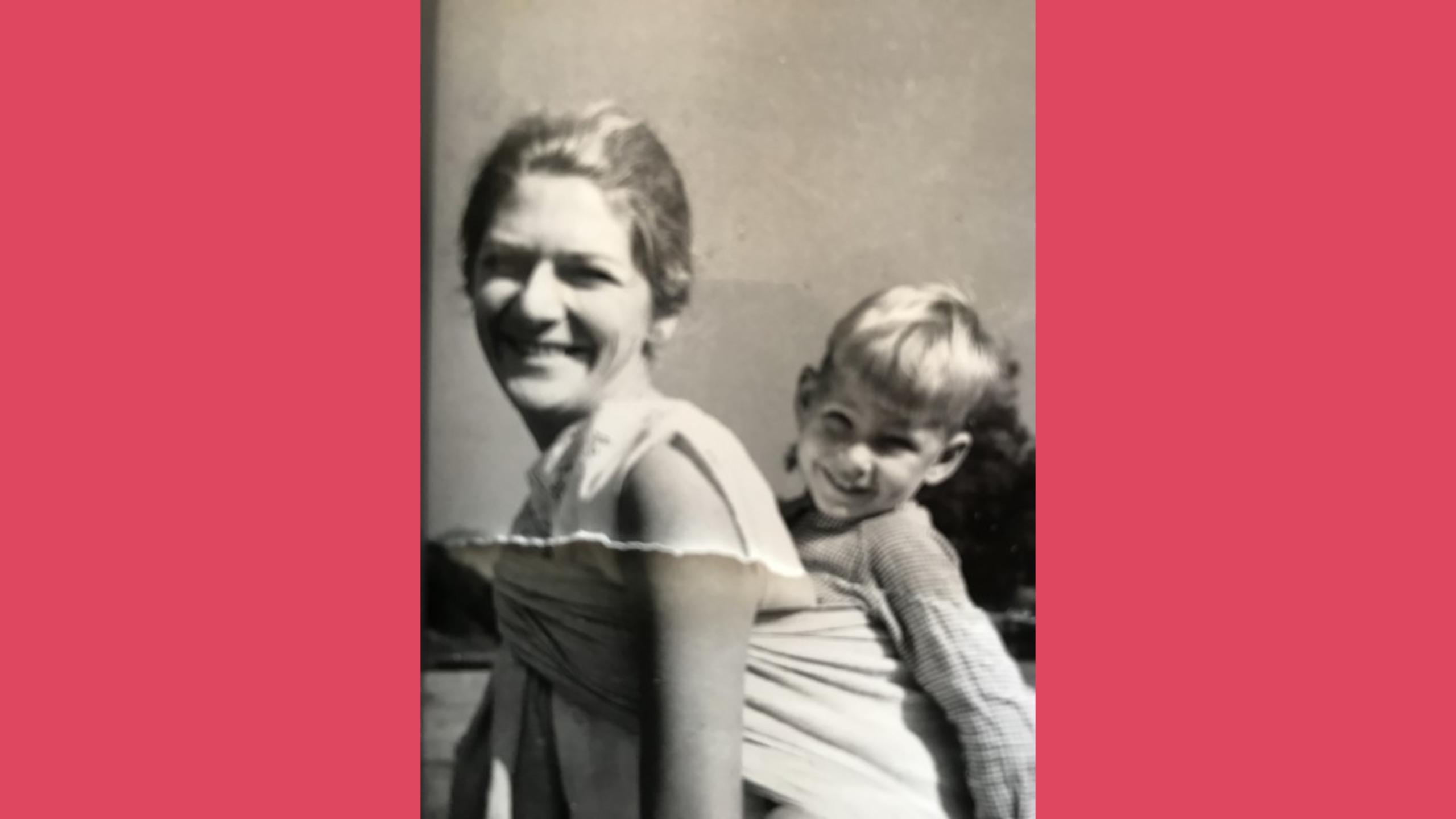
Elizabeth was often busy typing Bible study notes for women, but in fact found most days difficult. ‘I could not handle the heat,’ she exclaims. ‘I often got amoebic or bacillary dysentery or worms. We saw the nasty leeches through the monsoon. TB was rife. I was rarely well. It was hard to live there feeling so rotten so many days and as we were far from medical assistance when the children became ill it was very scary.
‘Yes, I could grin and bear it and carry on. Often, I did that. But I did not have a good constitution for that climate. I hung out for and relished the holidays when we could get to the Hills of India away from heat and bugs. Annual holidays were either in Darjeeling, Kulu Valley, Kashmir, or Mussoorie where we often took the children on adventures in the high Himalaya.
Then followed traumatic times with the Indo-Pakistan War of 1971 when India aided East Pakistan to separate from Pakistan and become Bangladesh. The family were living currently near the East Pakistan/Tripura border in Agartala’s Mission Compound. For a while, the town was inundated with waves of refugees, Hindus fleeing from Muslims and Muslims from Hindus. Gordon and Elizabeth and the other New Zealand missionaries helped provide food and bamboo longhouses.
Elizabeth tells of frightening times. ‘We were in the firing line, had to dig trenches, had our kids aged 5-6 sleeping under beds. They saw and heard bombs landing.
David disappeared for 4-5 hours one day. A policeman brought him back. He had been to look for the bombs and reported, “They didn’t shoot me at all!”’
Then suddenly the Indian police told them to leave, the same day. No explanation. No collecting belongings. No farewells. They landed back in New Zealand in the small hours of Christmas morning, 1972, stunned at the suddenness, their life turned on its head. Some New Zealand medical staff were permitted to remain for another year, then Tripura State was closed to all foreign persons for the next 25 years.
Re-working Family Life and Income in NZ
Gordon had hoped for more theology study in Scotland. Forget that. With NZBMS’s parting handout of $1500 they bought a caravan to live in. Gordon did pest control then returned to law, which felt like a backward step, and he was unhappy with the values in the firm. Elizabeth taught music at Auckland Girls’ Grammar. They moved to Thames in 1976. Gordon worked in a law firm and Elizabeth taught music at Thames High and studied externally for Bachelor in Regional Planning. She worked as assistant town planner for the Thames Council from 1977 to 1984. The children grew up and left home during this time.
The couple returned to Auckland and Elizabeth became Academic Registrar at the Auckland College of Education, while also on the board of the Carey Baptist College. Then there was a nasty upset for in April 1991 Elizabeth was in a car accident so bad that recovery took 11 months. Gordon was her caregiver. That was a terrible year, but the next was worse. Gordon died while climbing Kaiteriteri Mountain near Thames and Elizabeth’s mother fell from a balcony and was gravely injured.
Life in Singing: Elizabeth had quickly got back into the music scene in Auckland, singing leading roles with several Auckland Opera groups (with many thanks to Gordon minding children and hearth at home). Then in Thames, teaching singing and her own singing engagements, training the chorus for PERKEL opera shows. She had 25 music pupils and a children’s choir and founded the Thames Music Group. Yes, she had a paid job, but the hobby and community contribution held her heart.
Then, back in Auckland, she loved all the further singing, solos, chorus, operas, Handel and Bach oratoria and concerts. Wherever she was, the music poured out.
Then came a large disappointment. While singing solo in a concert for the Auckland Choral Society, Elizabeth experienced acute angina pain. Was it stress? She retired from solo singing and stuck to choral work, nursing some regret. ‘To no longer be able to make the sound I once made for people to enjoy and be transported by was huge. To me that loss has been incalculable. I have poured creativity into painting and writing but they are not the same. There is no immediacy, no audience as part of the equation.’ Eizabeth quotes a Rabindrinath Tagore poem here:
The singer alone does not make a song,
There has to be someone who hears.
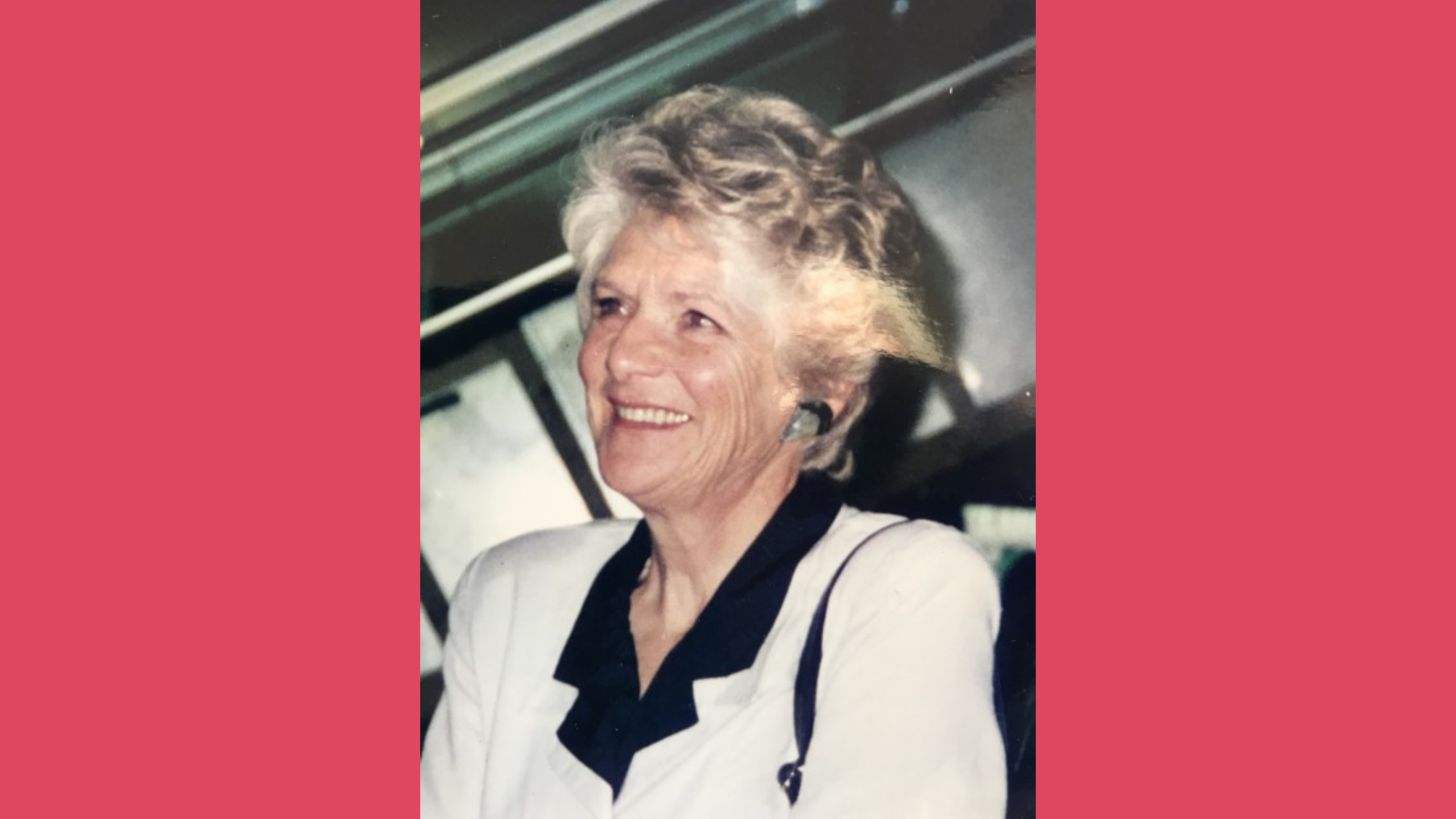
Later Years
Elizabeth managed Te Ara Hou ministry for Windsor Park Baptist Church for three years. When Tripura was open again, she returned several times to Agartala and Darchawii. NZBMS had kept strong communication with the church leaders, churches grew enormously in near revival conditions, and the reunion was heartfelt. Elizabeth was invited to return to teach at St Paul’s School in Agartala in 1997-99. During that time, she was able to help Jongbahadur by typing as he dictated in translating the Old Testament into Kokborok language.
In 2000 in Athenree, she built a home and commuted to Thames to manage Thames Baptist’s Community Ministries. She followed this with working in London for a while, returning to hobbies of painting, sewing, gardening, photography, reading, and of course choirs, concerts, cantatas and pupils.
In Tararu retirement village on the northern outskirts of Thames, her home overlooks the sea, and she very soon became the Village chairperson, and the Chair for the Waikato Region of the Retirement Village Residents’ Association.
Nor has she sat still. There were travel and further visits to India and the delight of continued friendships. ‘It was an absolute joy in December 2019 with the family to attend the Centenary of the Gospel coming to North Tripura and to meet old friends and young women now in leadership in Darchawii and to talk with Ziakhampui’s generation and their children and their grandchildren. Such a strong heritage. Women committed to the Gospel and to sharing the love of Jesus. Christ’s light will continue to shine through in the prayers, the work and lives of those committed women who are actively serving the wider community.’
Her advice to them indicates something about Elizabeth herself: ‘Be the change you want to see in the world and give all the glory to God.’
Sources
Personal interview with Elizabeth 29.07.2022
Written notes from Elizabeth
Reports by Elizabeth for the Tripura Baptist church

